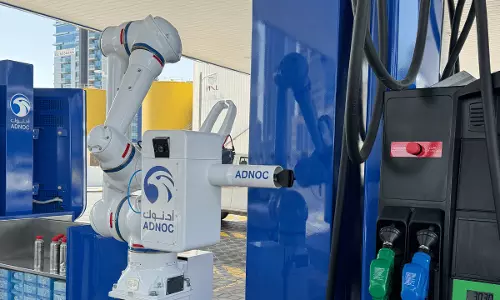
Life of dirt
text_fieldsThree persons including a woman were choked to death last Tuesday in a septic tank accident in Chembilode, Kannur.
The accident occurred when 42-year-old Muneer collapsed after inhaling toxic vapurs while cleaning the septic tank at a house at 4 pm in the evening. Ratheesh (36), who had hired Muneer for the task, tried to rescue him by getting down through a ladder. Sathi, 56, Ratheesh’s mother tried to help him out. But both were asphyxiated and collapsed into the pit. All the three bodies were recovered by the police and the fire force. The incident appeared in the newspapers as septic tank tragedy. There was a similar incident in Chennai the same day where four people died while cleaning the septic tank. One of the greatest Malayalam novelists Thakazhi Sivasankara Pillai penned a novel Thottiyude Makan in 1947. The highly controversial novel chronicles the life of Chudalamuttu and his son Mohanan, both scavengers by profession, who struggle to achieve individual dignity in a prejudiced society that oppresses them. Eshakumuttu, a scavenger, embraced death after passing on his work tools, the human waste container and his hoe to his son Chudalamuttu to continue his work. But Chudalamuttu didn’t want his son Mohanan to engage in the field and decided to improve his lot for the sake of his son. But as time went by, circumstances compelled Mohanan to take up the same job as his father. Considered a pioneer work in Malayalam that portrayed the oppressed and ostracized untouchables as people with real feelings, the novel challenges the rationale of the caste system where one’s profession depended on lineage.
Many have shared the pain and anxieties about those who are forced to take up the job of scavenging that requires hoeing and bearing human waste and garbage. That’s how the Parliament passed a law banning scavenging in 1993 called The Employment of Manual Scavengers and Construction of Dry Latrines (Prohibition) Act 1993. It also passed The Prohibition of Employment As Manual Scavengers and Their Rehabilitation Act later in 2013. But according to the 2011 census, 1, 80, 657 families continue to make a living from scavenging even today in India. It could be technically argued that cleaning the septic tanks and the sewers in towns and cities might not come under the laws cited above. But broadly speaking, they are akin to scavenging. The modern Keralites see scavenging as job to be carried out by the migrant workers from other states. A recent incident in Kozhikode city in which two migrant workers and an auto driver Noushad died of asphyxiation after inhaling poisonous gases inside the manhole they fell into, had triggered rampant discourses in the state. Noushad was trying to rescue the workers who fainted while cleaning the sewage pit. The gutters and tanks are loaded with extremely toxic and foul-smelling gases that can suffocate people to death.
All are aware of the dangers posed when the sewers are cleaned without any safety measures or security equipment. But the hapless poor are compelled to take up such jobs to earn their daily bread. There are no stringent and comprehensive laws and guidelines related to the construction and maintenance of septic tanks and sewers. The European Union had formed feasible laws related to the construction and maintenance of septic tanks of all the buildings including houses and the sewers in towns and cities. Such laws and guidelines have to be formed according to present circumstances in the state. Compelling people to do such jobs that lack dignity and risking their lives should be stopped. Carrying out such jobs and also hiring people for doing them should be banned. The government should also take initiatives to make available modern equipment and safety facilities that are capable of carrying out such works without requiring the people to do them. The Panchayats and the other government machineries should also join in the efforts by forming appropriate laws and schemes.























